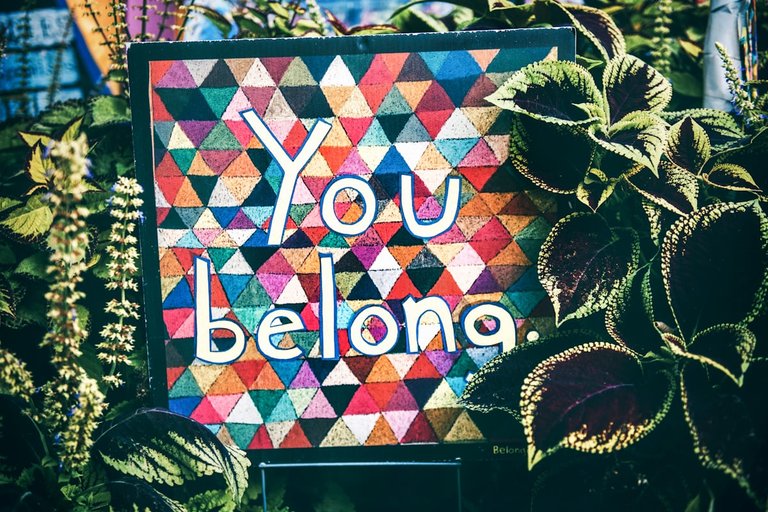BELONGING
Belonging is a fundamental human need, a deep-seated desire to feel connected, valued, and accepted within a group, community, or relationship. It transcends mere physical presence and delves into the realm of emotional and psychological connection. When we feel like we belong, we experience a sense of security and comfort that allows us to thrive and express ourselves authentically. Conversely, the absence of belonging can foster feelings of isolation, alienation, and even self-doubt.
From childhood, we seek out places and people where we can feel at home. Whether it's within our families, friend groups, or workplaces, the need for belonging is an intrinsic part of our identity. It shapes how we perceive ourselves and how we interact with the world. When we find a group that accepts us as we are, without judgment or pretense, we naturally gravitate towards it, finding solace in shared experiences and common values.
However, the path to belonging is not always straightforward. Many people struggle with feelings of exclusion, often stemming from perceived differences or societal norms that dictate who is considered 'in' or 'out.' These invisible barriers can prevent genuine connection, causing individuals to question their worth or suppress aspects of their identity to fit in. This phenomenon can be particularly pronounced in environments where diversity and inclusion are lacking, as marginalized individuals may feel pressured to conform to the dominant culture rather than expressing their authentic selves.
To cultivate a sense of belonging, both individuals and organizations must actively work towards creating inclusive spaces where differences are celebrated rather than merely tolerated. This involves not only recognizing the unique attributes each person brings to the table but also fostering open dialogue, empathy, and mutual respect. When people feel seen and heard, they are more likely to contribute meaningfully and connect on a deeper level.
Belonging also requires vulnerability—the willingness to share parts of ourselves, even those that may feel uncomfortable or imperfect. By opening up, we invite others to do the same, creating a shared understanding that fosters genuine connection. This mutual exchange can transform superficial interactions into authentic relationships, where each person feels valued for who they truly are.
In a world that often emphasizes individualism and self-reliance, the concept of belonging reminds us of our inherent interconnectedness. It teaches us that we are not alone and that our shared experiences can serve as a powerful foundation for building community and support. Ultimately, belonging is not just about fitting in—it’s about finding spaces where we can stand out, be ourselves, and still feel embraced.
The pursuit of belonging is a journey, one that requires self-reflection, intentionality, and a commitment to fostering inclusive environments. By embracing our own authenticity and encouraging others to do the same, we can create a world where everyone feels they have a place, a purpose, and a sense of belonging.


Hello @lectureme, this content has been detected as Ai written by two different detection tools. HiveGhana frowns on such act so kindly desist from it.